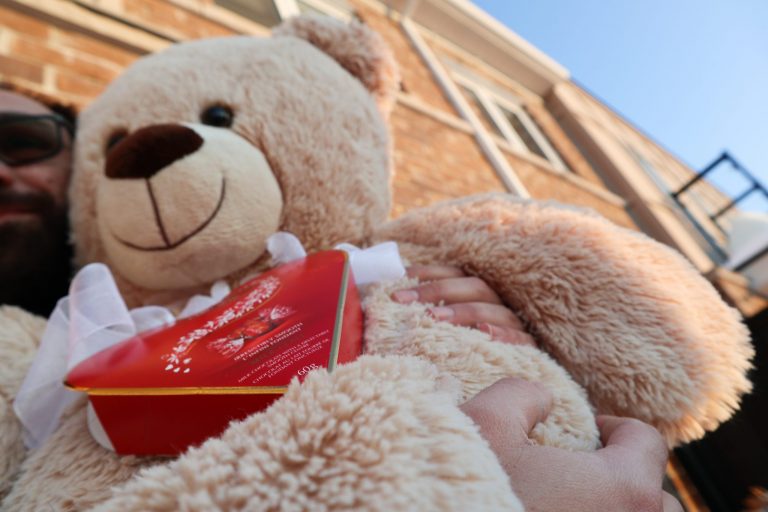Every year on Valentine’s Day, my parents go to the card aisle in the grocery store and choose a card for one another. They read the card the other chose, say ‘ahhhhh,’ and put the cards back. I have always thought this was brilliant. It gives them a warm fuzzy, they get to tell the other how they feel through the magical words of Hallmark and they don’t have to spend a dime!
This got me thinking. How do my friends feel about Valentine’s Day? As someone who does not celebrate the day with my partner I had never thought to ask, but the more I thought about it, the more curious I became. As a sex educator, I acknowledged Valentine’s Day and used it as an opportunity to educate about relationships, love and pleasure, but I completely ignored this day personally. Feeling like a bad friend, I sent a few messages and found out very quickly that my friends had a lot of feelings about Valentine’s Day.
Before I go any further, I want to tell you that my friends consist of white, cisgender, mostly straight, 30- or 40-something women, the majority of whom have children. Demographically, they may not be diverse, but they are a unique, intelligent, caring, brave and badass group of humans who never fail to amaze me with their resilience and determination. And I must admit their views on Valentine’s Day brought me to tears of both happiness and sadness.
There were those who felt the holiday was ridiculous, exclusionary, materialistic, heteronormative and obligatory. Many mentioned singlism—stigmatization and discrimination against those who are single—and how Valentine’s Day emphasizes this, as well as the stereotypes that everyone wants to be in a relationship and the idea that you are not whole if you are not coupled.
There was also discussion of the problematic socialization of girls and women being taught to dream about love, marriage and babies, leaving them with less capacity to reflect on sexism, inequity and discrimination. The ‘Disney thing’ became part of this conversation as the media often raises girls to think they need a man — a man will save them and a man will take care of them. This was not a message my friends wanted to pass on to their children, nor did they want to pass on the message that being cisgender and straight is superior to other gender identities and sexual orientations.
There were those who felt the holiday brought pressure to couples. Pressure to spend money on flowers, restaurants and jewelry; expectations to show your ‘friends’ on social media that you were in love and you have the perfect relationship; pressure that benefits no one and leaves some people disappointed, insecure and disheartened even though they understand the commercialism of the holiday.
There were also those who felt lonely and sad, even if they were in a relationship. The idea that one person can supply you with everything you need is ludicrous, and even healthy and loving relationships can leave people feeling unfulfilled. My friends felt they were often the ones doing most of the giving. Giving of themselves to partners, children, aging parents, and pets, while having full-time careers, keeping track of the family social calendar, and constantly checking off to-do lists. When Valentine’s Day comes around, they pour extra love onto their family and yet get none in return, often going to bed feeling alone and dejected while surrounded by family.
And there were those who embraced the day as a reminder of all the love and good in the world. They celebrated the love they felt for family, friends, support networks and life. For them it was not about romantic relationships, but a chance to take a moment in a hectic world and acknowledge that “love actually is all around.”
They learned from the pandemic that love needed to be celebrated at every chance. Some made heart-shaped pizza for their kids or took their pet for an extra-long walk or sent friends messages of appreciation and hope. Some made hand-made cards, and some dropped cookies off on porches. For one day in their busy, stressful, sometimes overwhelming lives, they took a deep breath and opened their hearts to the idea that there is more joy than pain to be celebrated.
As usual, I learned from my friends, and my heart grew one size bigger just knowing they love me.

